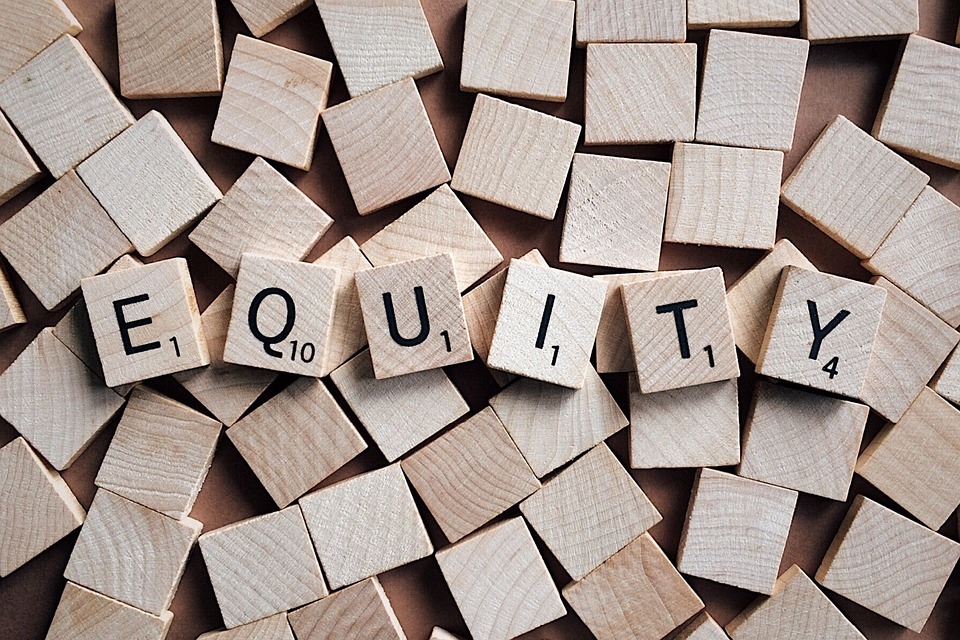Having a new home is one of the biggest goals for a lot of people, as a new home is often considered a sign of success, especially if the home looks beautiful and is fully furnished. However, getting a new house can be a very complicated task, as there are a lot of terms and processes that you need to understand and follow before you are actually given the keys to the house.
One of the complicated terms in buying a new house is home equity, and even a lot of new homeowners don’t really know what equity really is. If you are one of the people that don’t know what home equity is, we are here to guide you in understanding the term and the steps that are involved in getting equity for a house. So, without more delays, here are details about home equity and how it works.
The Definition of Home Equity
Home equity is often described as the current market value of the home or property, which is determined by how much money the homeowner actually paid for the home minus the unpaid portions of the mortgage. So, a down payment for the house would be included in the home equity, as well as the parts of the mortgage that you have already paid. If you only paid a small down payment for the home and have only paid a little for the mortgage, it means that you don’t have a lot of equity for your home.
In addition to down payments and mortgages, the equity of a home also increases if the value of the property rises, and this would often happen if the location of the property is considered profitable in the present or future time. If your home is located in an area that would soon be a business district for the city, you can expect the equity of your home to increase since the value of the property also increases.
If you are going to sell the property in the future, you would often have to rely on the equity of the home to know how much you can actually sell it. If the value of the property never increases, but you have paid big portions of the mortgage, then you can just sell the home for the same price as the money you paid for the mortgage.
How Home Equity Works
In order to understand how home equity works, let us provide you with an example. When you buy a new home for $200,000, and you pay a down payment of 10% ($20,000), the equity of your home would be at $20,000. Then, once you pay $10,000 more on the mortgage, the equity of the house is now at $30,000. However, if the value of your property increases to about $50,000, then the total equity of your home will be $50,000 plus the amount that you already paid for the mortgage.
From this example, you will already see how the equity increases as you keep paying for the mortgage of the property. When it is time to sell your house to another person, we recommend that you pay most or all of the pending payments for your mortgage first so that you can truly maximize the value of your property.
What is a Home Equity Loan?
In case you need funds for emergencies or for your child’s education, you can use the equity of your home as collateral to get a home equity loan. Before we discuss the intricacies of the home equity loan, let us first talk about what collateral is. The collateral is an agreement between you and a lender wherein you can forfeit a certain item or document in case you aren’t able to pay the money you borrowed in time.
In the case of the home equity loan, what you will put up as collateral is the actual equity of your home, which is most likely considered your ownership of the property itself. Once you apply for the loan, you will receive money that is equal to how much you have already paid for the down payment and the mortgage of the house. So, if you have $50,000 equity, you will also receive the same amount as a home equity loan.
When you don’t pay back the loan in time, what will happen is that the lender will gain the equity of your house and may foreclose it. Then, you will eventually lose the home to the bank. So, not paying for the home equity loan can be quite problematic for many homeowners, which is why they only apply for this type of loan during emergencies or when they have no choice.
The home equity loan is often considered a second mortgage since you will also have to pay for it to gain back the equity of your home. Deadlines for paying the home mortgage loan vary, and it would usually depend on the lender, although almost all lenders would give you five years or more to repay the loan.
What is HELOC (Home Equity Line of Credit)?
Besides home equity loans, you can also borrow money through the home equity line of credit, also known as HELOC. In HELOC, you will be given a certain amount of money after using the equity of your home as collateral. As opposed to the home equity loan, where you can borrow money that is equal to the equity of your property, the money you borrow from HELOC is determined by the lender.
So, even if you have $50,000 equity, there is a chance that you can borrow money that is higher in value compared to your home’s equity. However, the lender will sometimes need to see your credit score, current debt, and credit history to determine how much loan they will give you.
How To Increase Your Home Equity
Once you have a good idea about home equity and its advantages, you want to focus on increasing it. One of the ways you can do this is to make a sizeable down payment on the house you plan on buying. This will help improve the equity immediately. You can also look into the kind of mortgage you are getting. For example, suppose you are aiming to build up your equity over a period of time. In that case, you will want to avoid any interest-only loans. Since payments for such loans go towards interest only, your home equity won’t rise till you pay a lump sum amount.
Another way to increase your home equity is by paying off every mortgage payment and ensuring you pay more than the minimum amount. You can also stay in your home and take advantage of it till its value increases. This is an excellent method since the longer you stay in a home, the more likely you are to see its value and can highlight it. This will help add to your equity stake.
Making improvements can also make improvements to add value to your home. However, not all changes add value, so you should do your research to ensure you see a comeback on the money you are putting in for the renovations.
Pros and Cons of Borrowing on Home Equity
Pros
Borrowing a home on equity has many pros. You can obtain the cash you need and replace other higher-cost payment methods. It can also lower interest rates compared to credit cards and unsecured loans. Borrowing on home equity also means the funds you borrow are tax-free.
Cons
Some cons of borrowing on home equity are that fees may apply that may raise the effective rate. Additionally, you will likely need to restrict your use of funds, and in the future, you may be burdened by the added debt and related costs that come with borrowing on home equity.
Is a Home Equity Loan a Second Mortgage?
Yes. A home equity loan is a kind of second mortgage since it allows you to borrow money against the equity you have in your home. You will receive the money in a single payment. It is called a second mortgage because you will need to make an additional loan payment alongside your primary mortgage if you decide to take a home equity loan.
Conclusion
These are some of the important details that you need to know about home equity and the different terms and processes that are involved in it. Be sure to research more about home equity, mortgages, and other essential terms for home ownership and acquisition so that you will be fully knowledgeable about them once you buy a new home.






